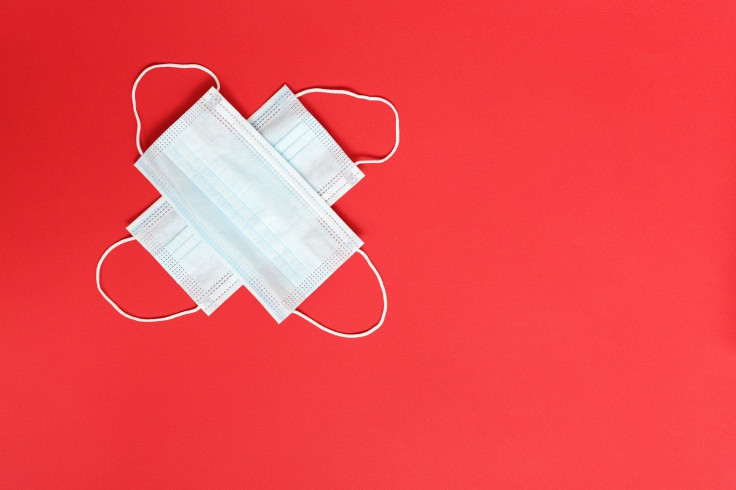Here's Why You Should 'Double Mask' For Best Omicron COVID-19 Protection
KEY POINTS
- "Double masking" can limit the spread of COVID-19, block respiratory particles and reduce exposure from infected people
- The CDC found that the practice reduced exposure to aerosols and droplet particles by up to 95%
- While "any mask" is better than no mask, doctors and experts urged people to wear N95-certified masks when available
People should consider "double masking" to help combat COVID-19’s omicron variant, medical experts said.
A study conducted by the Centers for Disease Control and Prevention (CDC) found that wearing a cloth mask over a medical procedure mask — dubbed by the agency as "double masking" — reduced the wearer's exposure to aerosols or droplet particles of the size considered most important for transmitting the coronavirus by up to 95%.
Dr. Maureen Tierney, MD, chair of the Department of Clinical Research and Public Health in the Creighton School of Medicine, encouraged people to consider the practice due to COVID-19's highly transmissible omicron variant, Channel 8 KLKN-TV reported.
"Wearing a tight-fitting cloth mask and medical procedure (surgical) mask together can help limit [the] spread of the virus that causes COVID-19 by helping with source control or substantially reducing exhaled respiratory particles from infected wearers and reducing exposure of uninfected wearers," Tierney explained.
Health care providers double their masks as a preventive measure to keep their colleagues and patients safe.
However, the CDC study found that double masking "might impede breathing or obstruct peripheral vision for some wearers."
While double masking is one way of providing "excellent protection" to people, it is also important to wear a mask that fits properly, according to Dr. Allison Arwady.
"If you’ve got gaps, you can have droplets leaking out. We’ve been recommending wearing one of the surgical masks with a cloth mask over it," Arwady, the commissioner of the Chicago Department of Public Health, told NBC 5 Chicago.
Arwady claimed that having "any mask" offers "the biggest jump in protection" from having no mask, but she recommended people to go for N95-certified masks or their international equivalents.
Other doctors and medical experts have also urged people to start using N95 masks — named after their ability to block at least 95% of airborne particles when properly fitted.
The N95 certification is handled by the National Institute for Occupational Safety and Health (NIOSH). Meanwhile, the KN95, KF94, and FF2P respirators are certified in China, South Korea, and Europe, respectively.
Demand for the N95 and KN95 masks rose because the two reportedly provide better protection and have better overall quality than the others.
However, counterfeit masks have flooded the market, with the CDC claiming that "upwards of 50, 60, 70%" of masks the agency tested in previous years were "substandard or fake."
The agency has provided a list of NIOSH-approved N95 masks on its website, with information on each of the respirator's manufacturers, model number and filtration efficiency.
The CDC also has a list of KN95 and other non-NIOSH-approved masks that have gone through assessment.
The United States has reported a total of 63,397,935 COVID-19 cases and 842,873 virus-related deaths since the start of the pandemic, based on data provided by the CDC.

© Copyright IBTimes 2024. All rights reserved.





















